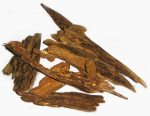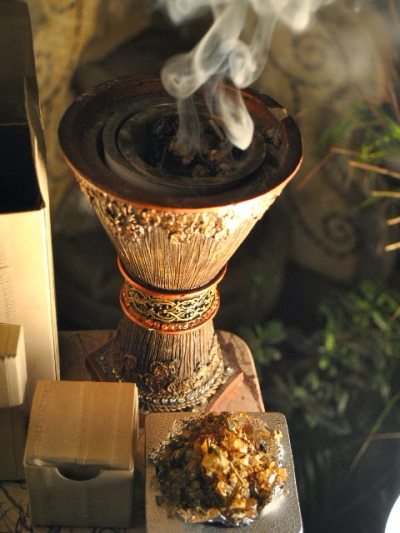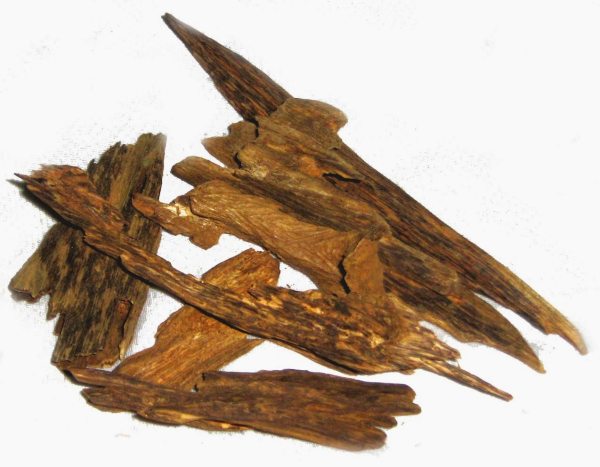Many of you will be familiar with the smell of synthetic Oud in modern perfumes. This is not what we are talking about. We are talking about oud from nature, from a tree. Most of you would not have come across this smell in daily life unless you have spent some time in an Islamic culture. We will explore this culture today through the prism of scent.
Oud is highly valued by perfumers for its sweet, woody, aromatic and complex scent. It is a classical note in perfumery, most often used as a base note.
Oud is also called Agarwood. It comes from the wood of the tropical Agar (Aquilaria) tree, believed to have originated in the Assam region of India, and spread from there throughout Southeast Asia. When the wood of this tree gets infected with a certain mold variety (Phialophora parasitica), it reacts by producing a precious, dark and fragrant resin from which is where the perfume ingredient is derived.
The first thing your sense of smell picks up in an Arab house is the heady aroma of Oudh wafting in the air..
Oudh is considered as a supreme fragrance in the Gulf countries.
In Qatar, Oudh is burned as a mark of respect and hospitality and is a traditional gesture of welcoming and honouring guests. In fact, Oudh is considered an important feature at most social occasions..
Oudh, which simply means wood in Arabic, has an extraordinary pedigree. Also known as aloes and agarwood, Oudh is found in the forests of South East Asia.
It is an aromatic resin found in certain species of Aquilaria and Gyrinops trees. The resin is produced by the tree as an immune response to a fungus – Phialophora parasitica – that invades the tree and over many years spreads through it.
It is believed that it takes as long as 300 years for the fungus to spread through the bark of the tree. Unlike the otherwise pale wood of the tree, infected sections are dark and extremely heavy. In fact, the Chinese and Japanese terms for Oudh translate as ‘the wood that sinks in water’.
The best grade of Oudh is hard, nearly black and very heavy. In general, Oudh becomes inferior as it becomes lighter in tone, flecked with diminishing amounts of resin.



